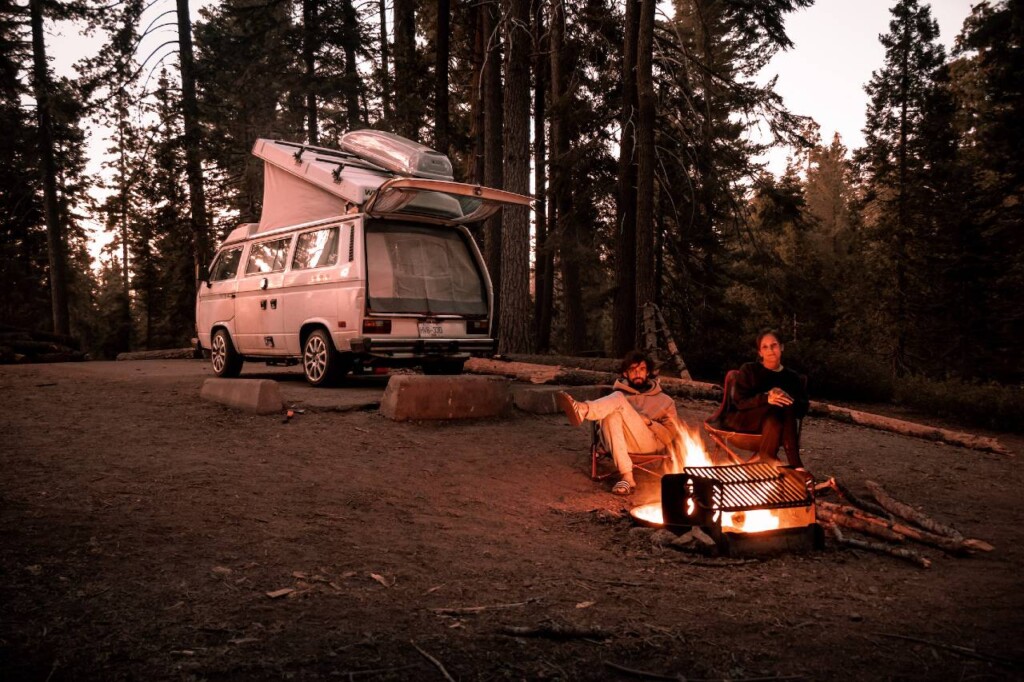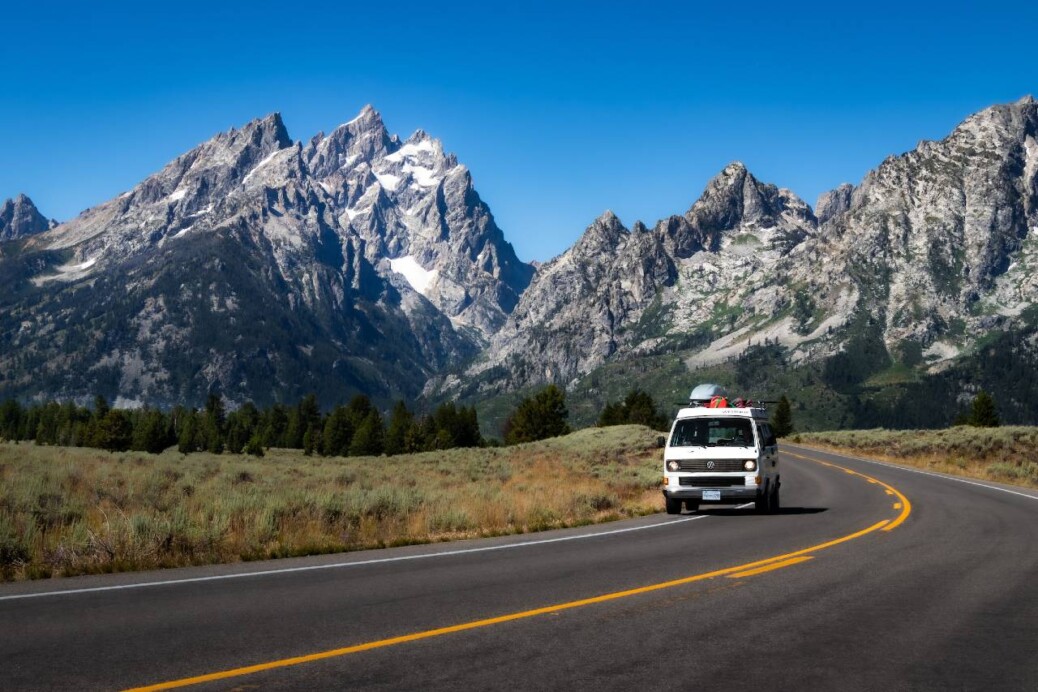For many of us, we choose to live the Buslife to enjoy a simpler way of life with more freedom to explore parts of the world that we otherwise may never experience. Living on a smaller scale means that our carbon footprint and environmental impact are more likely to be smaller. We use less energy to run our VW Buses than we would a traditional home, and as consumers, we buy less “stuff” to fill our homes with. However, as Buslifers, we are by no means innocent when it comes to environmental impact. As we drive through natural beauty areas and visit historic landscapes worldwide, we impact the natural environment by causing damage, pollution, and contributing to overcrowding.
What can we do?
We need to help sustain healthy and vibrant natural lands, as a community, for others’ benefit to enjoy and for the future. As a community, we need to help sustain healthy and vibrant natural lands for others’ benefit to enjoy and for the future. Tackling the issues that revolve around environmental impact is The Leave No Trace Center for Outdoor Ethics. An organization based in the USA, it promotes the importance of no littering and having a minimal impact on the outdoors. Its success across Northern America has since seen other countries around the world adopt leave no trace policies. Tackling issues including litter and pollution, wildlife protection, damage caused to natural landscapes, overcrowding, forest fires, and connecting youth with nature.
As Buslifers, we’ve all witnessed scenes where fellow adventurers haven’t followed the leave no trace code. According to an article published on The Guardian website, we are loving nature to death as tourists. In the spirit of spontaneity, how many times have we visited a destination with zero planning, only to discover it’s overcrowded? How many times have we experienced first-hand the negative impacts of overcrowding? Waste left behind, damage and erosion to popular hiking trails and tourists approaching local wildlife, feeding them foods that are not part of their regular diet and damaging their natural habitat.
None of this is acceptable, and as a species, we need to stop the negative impact we are having on our planet. However, thanks to the seven principles of Leave No Trace, the Buslifers community has the opportunity to not only help care for the outdoors, but we can also help to educate others on the importance of this mission.
The seven principles of Leave No Trace
A simple framework that helps minimize our impact when visiting the great outdoors.
1. Plan ahead & prepare
By planning and preparing for trips in advance, we ensure minimal damage is caused to natural areas, and our visit is both enjoyable and, most importantly, safe!
Key points to remember
- Plan the objectives for your trip.
- Get to know the area you are visiting with guides and maps.
- Understand the terrain of the area you’re visiting and establish if the skill and ability of your party are suited to it.
- Prepare your equipment to minimize your impact on local resources.
2. Be considerate of other visitors
Everyone has the right to enjoy the outdoors, and it’s our responsibility to ensure the natural appearance of the outdoors is not ruined for others by our careless actions.
Key points to remember
- Get to know who has the right of way on trails. For example, cyclists should announce their presence when seeking to pass hikers, and both cyclists and hikers should give way to equestrians.
- Minimize your use of technology. For example, it is polite to use earphones rather than speakers to listen to music.
- Keep your noise to a minimum on both trails and in campsites.
- Keep pets under control at all times and pick up after them.
- Minimize your visual impact by choosing equipment and clothing that is earth-toned.



3. Travel & camp on durable surfaces
Travel damage to our natural land is caused when vegetation is trampled beyond the point of rejuvenation. We should, therefore, always remember to consider our impact on both land and waterways when traveling outdoors.
Key points to remember
- Off-road travel should be kept to a minimum but where required, always consider the durability of the surface you are traveling on. For example, rock, sand, and gravel are highly durable, whereas some vegetation types will quickly be damaged by trampling.
- Where possible, camp on established sites.
- When camping off-trail, always choose a campsite on durable surfaces and in popular areas, pitch-up in an area that is not visible to others.
- When breaking up a site, spend some time naturalizing the site to ensure you leave the area with no evidence of previous use.
4. Respect wildlife
Observing the wildlife is one of the most beautiful parts of traveling to beautiful destinations worldwide. Sometimes, we all need reminding that we are visiting their home and need to respect it so that we continue to preserve species for future generations.
Key points to remember
- Observe wildlife from a distance so as not to disturb them.
- Preserve natural habitats by not trampling landscapes to observe local plants and wildlife.
- Keep noise to a minimum so as not to scare wildlife.
- Travel in small groups.
- Never touch or try to pick up wild animals.
- Never feed wild animals with scraps of food.
- If you find a sick or injured animal, notify a local ranger or wildlife charity.
5. Minimize campfire impact
Building and enjoying a campfire for many people is one of the best experiences while camping. However, the effects of campfires can be long-lasting and, in some cases, devastating. If you plan to build a campfire, ensure you have the skills needed to cook on one safely and minimize its impact on the natural land.
Key points to remember
- Check there are no restrictions on campfires in the location you are traveling to.
- Only build a campfire where there is no risk of danger and at a time of year when it is safe to do so.
- Choose a durable surface for your campfire that will cause minimal damage to the landscape.
- Select a location where wood is readily available for your campfire.
- Instead of building a campfire, consider using a stove when cooking while camping. Suitable for use in all weather conditions, stoves also leave no trace.
6. Leave what you find
It’s a fantastic feeling when you discover an interesting plant, rock, shell, or archaeological find while exploring a landscape. Allow others to experience that same feeling by leaving areas as you found them.
Key points to remember
- Never cause damage to trees or plants.
- Do not pick flowers.
- Do not collect cultural artifacts.
- When camping, never make alterations to the natural landscape and leave areas as you found them.
7. Dispose of waste properly
Leaving our waste behind when we visit natural landscapes not only spoils it for others visiting the area, it will also have a significant impact on wildlife and water bodies.
Key points to remember
- Follow the mantra “Pack it in, Pack it out” when traveling outdoors.
- When camping, inspect your site for forgotten litter before leaving. This includes food leftovers.
- Urine has little effect on natural landscapes, but diluting it with water will limit its impact.
- In most areas, bury human waste in a hole that is 6-8inches deep. However, always ensure you are at least 200 steps away from water; take any used toilet paper with you. In sensitive areas, you may be required to pack out human waste.
- Menstrual products do not decompose and should always be packed out.
- Wastewater should be strained and scattered.
- Never use soaps or lotions near water bodies.
To learn more about these seven principles, visit the Leave No Trace Center for Outdoor Ethics website.
These principles provide us with a basis for enjoying the wild while having a minimal impact on it. Once you start living by these rules, you will soon think of Leave No Trace as a way of life. If you’re enjoying a Buslife that also helps protect our natural environment for others and the future, you might be interested in these additional tips that will help you go above and beyond the Leave No Trace principles.
- Go litter picking and collect other people’s trash.
- Boil and drink greywater rather than scattering it.
- Use organic matter instead of toilet paper.
- Destroy fire rings to discourage other campers from starting campfires.
- Use edible toothpaste tablets that you can swallow rather than spitting out.
You can also take the Leave No Trace principles an extra step further by inspiring a culture of environmental responsibility, engaging with local communities in everyday activism and conservation.
- Communicate the seven principles of Leave No Trace via your social media accounts.
- Share your knowledge of Leave No Trace with other Buslifers while traveling.
- The Leave No Trace Center for Outdoor Ethics provides several ways to get involved in their mission by becoming a member, volunteering, and training.
- Give back to the community by volunteering with environmental and conservation projects. Find opportunities to volunteer in the UK via naturevolunteers.uk or on International Volunteer HQ, for worldwide projects.
Are you a Buslifer who is passionate about Leave No Trace? We would love to hear from you with your suggestions about how we as a community can continue to encourage others to live by these principles and help protect our planet. Leave a comment below to share your story.
If you’d also like to learn more about how to live an environmentally friendly Buslife, check out our article How to Reduce Your Waste on the Road and How to Live a Sustainable Buslife.



[…] People who embrace the concept of slow travel also do so because of being aware of the necessity to reduce carbon footprint. Traveling often has a harmful impact on the environment, and traveling less means less harm. Slow travelers have the awareness of their environmental responsibility. […]